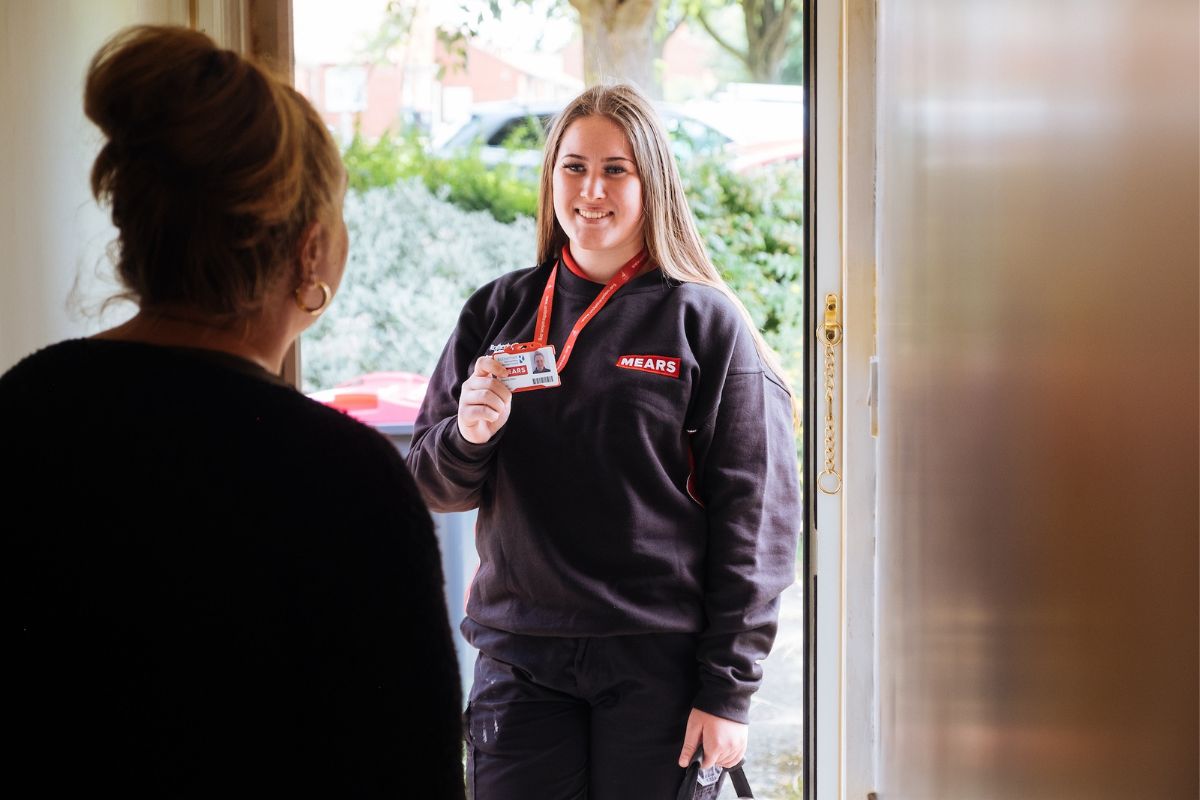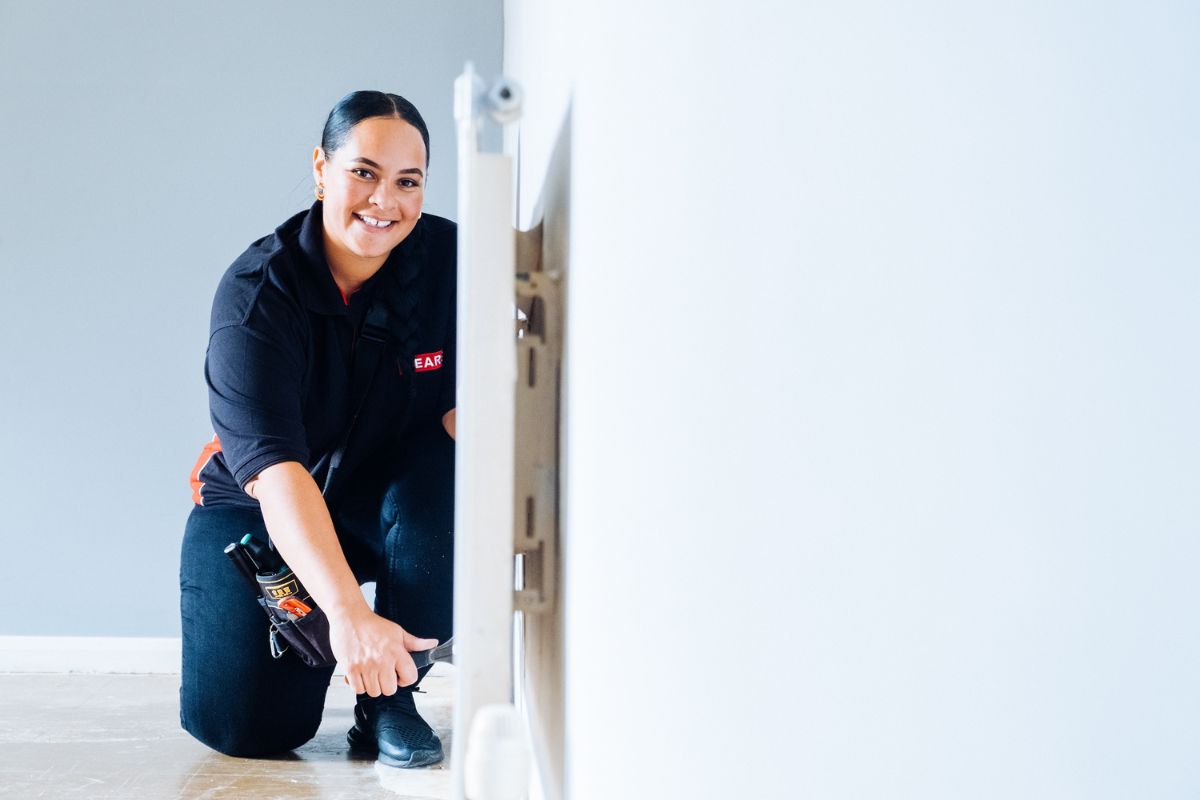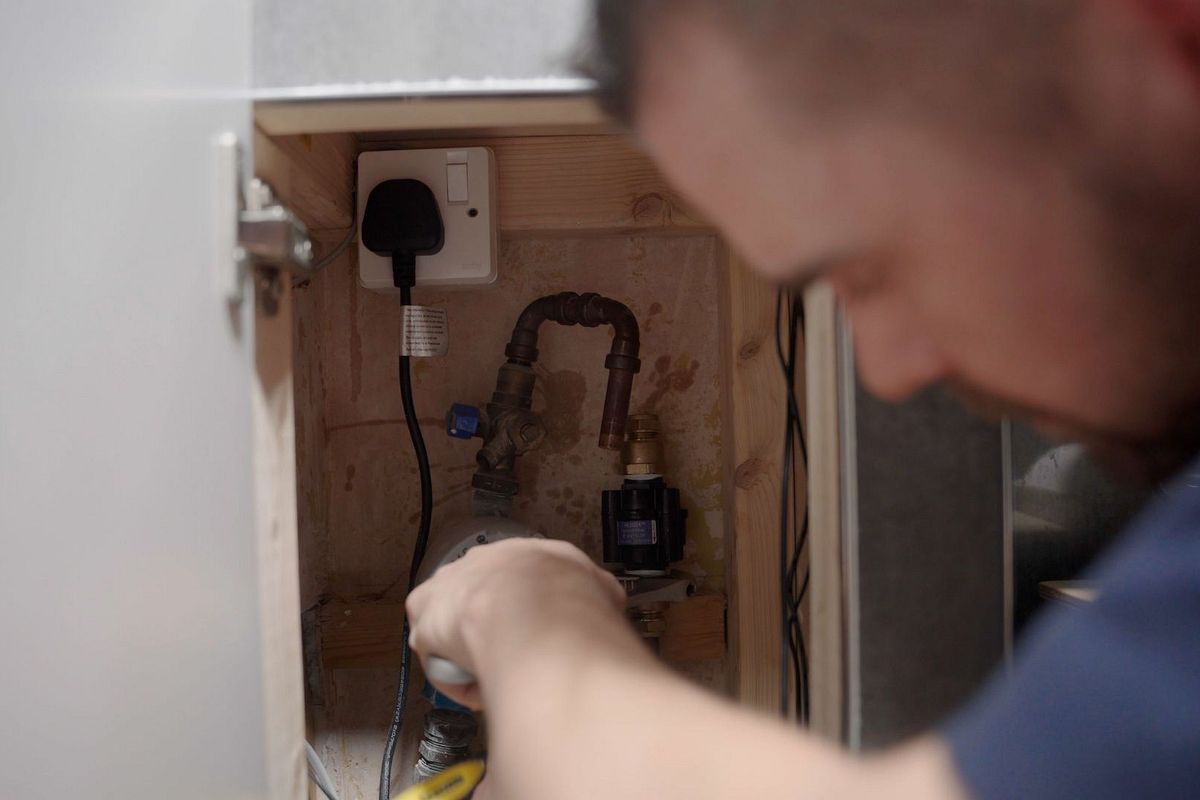Domestic Retrofit: a net zero opportunity
As one of the UK’s leading housing and care providers, Mears Group is committed to its positioning as a partner for purpose.
We provide and manage 17,000 homes for local and central government and are responsible for keeping 750,000 social homes in good repair.
Our focus on retrofit is based on our experience in the social housing sector, but the technologies and approaches required to deliver effective retrofit in this space, are also significant and relevant for the housing and construction sectors as a whole.
Our approach is not only about the physical buildings however, our ethos and strategy are also centred around people and the communities we serve - making a positive impact on people’s lives, their homes, their sense of place, and ultimately the planet.
Our new decarbonisation report – ‘Warmer, healthier homes, domestic retrofit, a net zero opportunity’ talks about the realisation for our organisation that retrofit isn’t simply about meeting our net zero targets, it is much bigger than that – it’s about people. While there is no right answer to delivering retrofit, this report is very much our contribution to the wider debate as we believe that the sheer scale of retrofit required in the UK to deliver on net zero can only be delivered through the sector coming together to learn and understand from one another.
At the heart of this, improving the environmental standards of homes should not only be about making them futureproof – the overall aim is about the delivery of better homes both now and on the ultimate path to 2050. By working together to lower emissions, improve standards and reduce energy costs, this in turn will have a meaningful and tangible positive influence on improving the health and wellbeing of residents. Better homes are also the key to fostering a sense of pride in communities, invoke a sense of place and creates better environments where everyone can live and work.
Mears Group is at the Retrofit and Strategic Asset Management Summit in London on Wednesday 20 March with our own Richard Hughes, partnership development director, joining a panel discussion alongside our peers from Yorkshire Housing, Longhurst Group and London councils.
The panel discussion will see us join the discussion around the question: ‘how do you meet standards and regulations as an obligation whilst overlaying planned works with retrofit to ensure value for money?’
Alongside the panellists, Richard will share a little about Mears Group’s whole-system, holistic and collaborative approach to decarbonisation which considers all aspects of the challenges around energy use and emissions. Our view goes beyond simply implementing individual technologies or practices. We know that to be anywhere on the road towards delivering on the desired outcomes, we first must understand what is currently in place, how it operates. We need to acknowledge how everything is interconnected, from heat, power, and transport through to the infrastructure that interconnects them.
Our report talks about the fact that there is no ‘silver bullet solution;’ The scale of change required to deliver decarbonisation means that no single government or organisation can possibly deliver what’s needed through an isolated strategic and operational plan. Decarbonisation needs to be about collaboration on all sides.
Tackling cost – the question of funding
Whenever we talk about net zero or decarbonisation the elephant that is always in the room – is one of cost.
The introduction of the Social Housing Decarbonisation Fund has been a catalyst for positive change. Not only has it provided a clear line of funding, the work that has been delivered as part of Wave 1, has undoubtedly informed the approach and scale of the wider Wave 2.1, allowing the sector to deliver more, but also deliver better. With the announcement just before Christmas 2023 of the intention of Wave 3 to be delivered beyond 2025, this builds additional certainty for the sector.
Government funding needs to function as an anchor for activity but will require private sector finance to deliver on the quantity of work involved. It reinforces the request from the private sector for the importance of a consistent policy framework to work within and plan against. The level and value of investments mean they will have to be long-term in nature with defined payback terms.
To provide true confidence for investment decisions long-term plans and visions are required so that people understand their commitments. It is why a political consensus about climate change and the work required to adapt and mitigate its challenges has been so important.
However, the cost of net zero can’t simply be borne by the public purse. No one government can fund the transition entirely. It will have to be funded through a combination of public and private finance. Indeed, the private sector will fund most of the transition. The business and economic models to facilitate this need to be compelling.
To deliver a long-term change programme which decarbonisation is, we therefore need long-term finance structures and investment plans, which reflect and understand the return on investment might be longer in nature than what has been the norm in previous times.
Why resident engagement is so important
We believe that there is an intrinsic need to educate residents and whole communities about what retrofit is and have honest conversations about what the work involved will mean for them both in the immediate and longer term. Excellent resident engagement is important; not only so we can understand what’s important to them, but also ensure that any planned retrofit works meet their needs too. After all, poor communication around retrofit programmes may create a sense of mistrust.
The extent of work and the intrusion on their lives involved with retrofit worries many residents. Retrofit can be a complex issue to explain but placing education and information at the heart of any approach will almost always make this easier. Once residents can see the bigger picture about the why and how of the retrofit works, they’re more likely to see the benefits of taking part – once again placing people at the heart of the programme.
It’s important to remember that not everyone is motivated to reduce their carbon emissions, especially when we are in the middle of a cost-of-living crisis. A number of motivating factors should be used to convince residents of the benefit of retrofit and how it can positively impact other parts of their lives. If the reduction of carbon emissions because of retrofit becomes a by-product, rather than the main selling point, then ultimately this is still mission accomplished. It is this end outcome that matters rather than the motive.
Addressing these challenges requires a coordinated effort involving policymakers, building professionals, homeowners, and other stakeholders to develop strategies that make retrofitting more accessible, affordable, and effective in achieving net zero energy goals.
Ultimately, retrofit is about improving lives. It is about improving the viability of the asset (the home), it is about invigorating the community – and, at the end of the day, it’s about healthier, warmer, better ventilated, cheaper to run homes – that do not damage the environment
For a full copy of our report ‘Warmer, healthier homes – domestic retrofit, a net zero opportunity,’ contact Mears today: communications@mearsgroup.co.uk.





